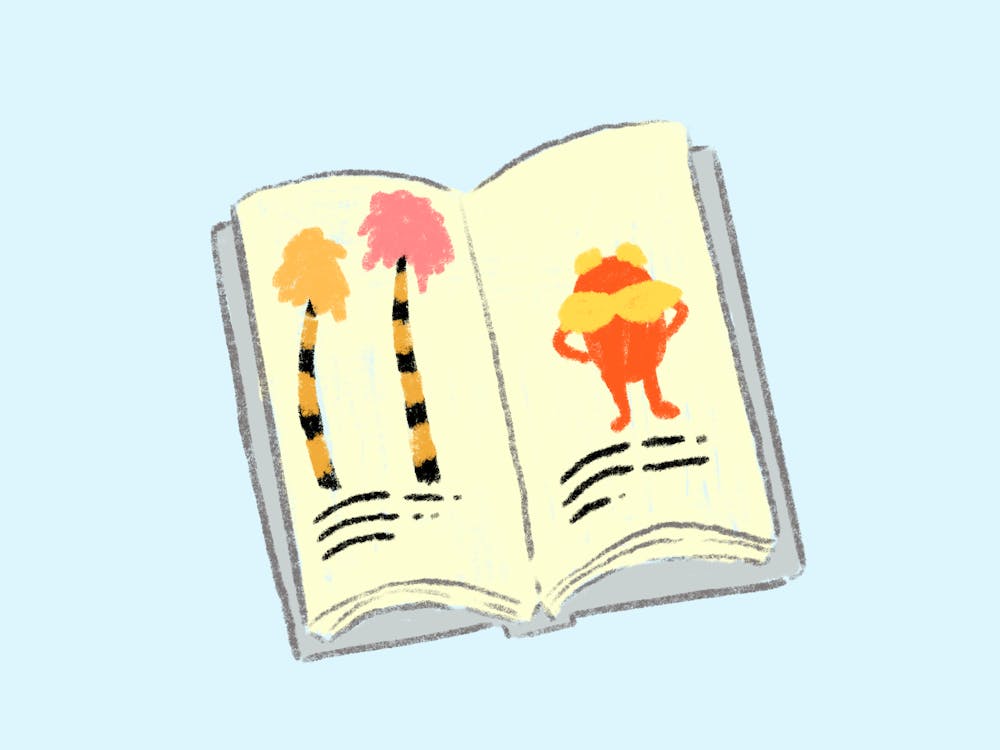One of my all–time favorite children’s books when growing up was The Lorax. I loved the smooth and satisfying rhythm of its rhyming scheme and the detailed and colorful illustrations. I would turn each page slowly as to drink everything in—and I was fascinated by the story.
The Lorax is a Dr. Seuss classic. The book is set in a depressingly decrepit world eroded by pollution. It begins with a young boy visiting a mysterious man called the Once–ler to learn about the disappearance of the magical being called the Lorax. The Once–ler explains to the boy that their world used to be beautiful, filled with cute little creatures and vibrant nature, until the Once–ler began cutting down all the Truffula Trees to make Thneeds, a multi–purpose fabric. He tells the boy that the Lorax tried to stop him. But the Once–ler’s greediness and insatiable desire for more caused him to ignore the Lorax’s pleas and warnings until eventually there was nothing left: no cute little animals, no beautiful nature, no Truffula Trees, and no Lorax.
In 2012, around forty years after the book’s publication, this beloved Dr. Seuss classic was turned into a successful animated musical. I remember dragging my family to see it, my twelve–year–old self eager to see one of my favorite stories on the big screen and ecstatic that the cast featured icons like Zac Efron and Taylor Swift.
The movie was different from the book, with a more intricate plot, cute subplots, and new characters. The movie version names the boy who visits the Once–ler Ted, and the town Thneedville, a society that bought all of the Once–ler’s Thneeds. This town’s infrastructure is completely artificial—they even sell and produce bottled air—and so Ted goes on a quest to find a real tree, hoping to impress his crush who’s a staunch environmentalist.
But since that viewing all those years ago, I haven’t thought much about The Lorax—until recently.
On July 7, The Lorax was uploaded to Netflix. Years later, Dr. Seuss’ prescient message in 1971 continues to be relevant and powerful.
At surface level, the story is a fable about the importance of environmentalism. It reprimands and criticizes big companies and corporations whose products are gradually destroying our ecosystem, and calls out the consumers who perpetuate this vicious cycle.
Indeed, our world is currently in danger, with greenhouse gasses, toxic waste and global warming all causing irreparable damage to our environment. Soon, the detrimental effects of climate change will be irreversible, a fact that is often overlooked by many. Dr. Seuss' warning, therefore, could not be more needed.
But in rewatching The Lorax, it is clear that the moral of Dr. Seuss’ story transcends the call for environmentalism. It’s about activism in general—standing up for justice as a voice for the voiceless. When the Lorax first appears to the Once–ler, he famously introduces himself by saying, “I speak for the trees,” appealing to the Once–ler on their behalf and speaking up against injustice.
It is a story about empathy and caring enough to take action. Dr. Seuss writes, “Unless someone like you cares a whole awful lot, nothing is going to get better. It’s not.” This iconic line is how the Once-ler finishes telling Ted his life's story. The Once–ler then tosses Ted the last seed for a Truffula Tree and tells him to plant it. He gives Ted the opportunity to implement change, to right wrongs, to fix what was broken.
The Lorax, therefore, serves as a reminder—one that is desperately needed right now—to speak up against injustice and oppression, and to work to make change. Though The Lorax may be a children's book and movie, this pertinent and powerful message is one to carry on in our adult lives.

